
The Asheville Film Society kicks off its October series with a pair of infrequently seen pre-Code mysteries (taken together, the films are only a bit over the two hour mark). The first — and more stylish — film is Michael Curtiz’ Private Detective 62 (1933) starring the great William Powell. Actually, calling the film a mystery is a bit of a stretch, since the only mystery is just exactly who “Private Detective 62” is. (If it’s ever mentioned in the movie, I’ve missed it.) It’s more of a fast-paced crime drama than anything. Powell plays Donald Free, a kind of secret service man for the State Department, who takes one of those assignments — you know, the kind where, if you’re caught, the government will deny any knowledge of you? Of course, that means that Free is indeed caught trying to steal secrets from the French government and is deported — only to have them change their minds when the film gets into New York harbor, deciding he needs to be brought back to France for some other punishment. Rather than face this, Free jumps ship and swims to safety.
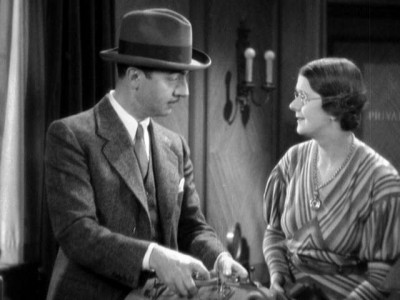
However, the government won’t take him back, and his record keeps him from securing a job. (It doesn’t help that the Depression is in full force.) Then an opportunity presents itself and Free goes into partnership with sleazy private detective Hogan (Arthur Hohl). The partnership is hardly a rousing success. At one point, Hogan is stealing dogs for the reward money for finding the “lost” pooches (“We’ll either have to get a new racket or new rug,” observes Free), but this changes when they go into partnership with a gangster/gambler named Bandor (Gordon Westcott). Free is none too happy with the business’ very high sleaze factor, but more or less takes it until he’s asked to dig up some compromising dirt on an heiress, Janet (Margaret Lindsay), who, of course, he falls for. What happens is clever enough, if not very surprising.
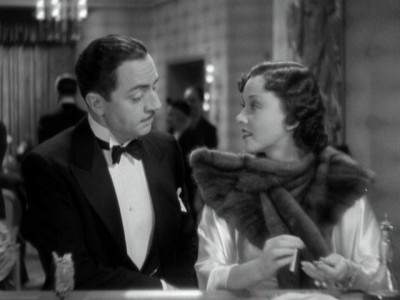
Warner Bros. apparently was interested enough in the film to break loose with a few bucks to Paramount to get the rights to use (and effectively) the hit song “Isn’t It Romantic?” as a love theme for Free and Janet. But what really sells the film — apart from its pre-Code allure (including a character who’s a twitchy coke-head) — is Curtiz’ stylish direction (the ending shot is pretty amazing) and Powell’s immense charm, not to mention the easy chemistry he has with the underrated Margaret Lindsay. Powell, of course, can carry just about any movie, but his really on his game here. It’s not the kind of film that’s ever going to make anyone’s Ten Best list, but it’s so enjoyable that it ought to be better known.
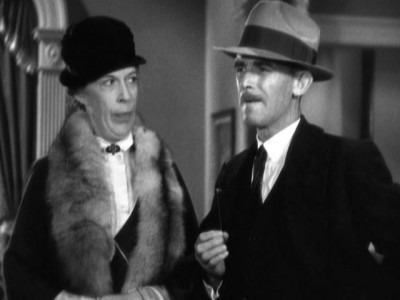
Less stylish — largely because George Archainbaud was never a very stylish director — but just as much fun is Penguin Pool Murder (1932), a mystery about a murder at the New York City Aquarium. This was the first of three films — adapted from novels by Stuart Palmer — that starred the wonderfully acerbic Edna May Oliver as spinster school teacher Hildegarde Withers, who has a propensity for getting involved with murders. She’s partnered with gruff, cigar-chewing James Gleason as Inspector Oscar Piper, who both resents and appreciates her meddling. For that matter, he appreciates Miss Withers on an altogether different level, making the duo one of the movies’ rare middle-aged romantic pairings — and one of the most delightfully odd ones.
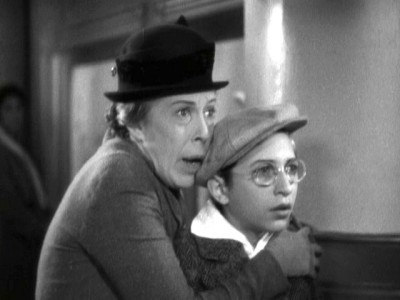
The story involves the murder of a broker named Parker (Guy Usher) — one of those gents who spends the bulk of the first reel just begging a variety of folks to bump him off. As luck — and clever scripting — would have it, this happens at the very time that Miss Withers is taking her class on a field trip to the aquarium where he meets his demise. In fact, she and one of her charges is right there when the fellow’s body takes an unceremonious tumble into the penguin pool of the title. The mystery that follows is good enough without being particularly dazzling, but that’s less the selling point than the clever characters, the unusual leads, and the bright dialogue.
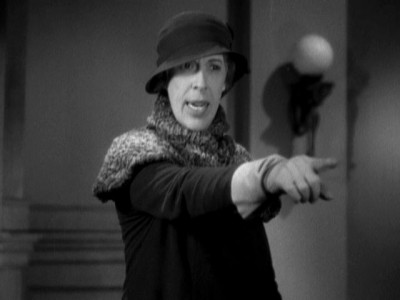
Penguin Pool Murder is cheerful in its political incorrectness. Though the idea of political correctness didn’t exactly exist at the time, the Production Code would have something to say about it in a couple of years. (There was very little the Production Code didn’t have something to say about.) For instance, early in the film Miss Withers snaps at one of her students — the almost excessively Jewish Isadore Marx (Sidney Miller) — to hand over a purse he’s examining by admonishing him, “You’re not lending money on it.” Later in the film, she responds to a chewing gum-snapping telephone operator’s (Rochelle Hudson) question, “You wouldn’t expect a woman to call me ‘baby,’ would you?” with, “No, not so far downtown” — a reference to the Upper West Side’s then reputation as a mecca for lesbians. It’s that kind of movie. Plus, you get Gustav von Seyffertitz, Clarence Wilson and a penguin — all of which can only improve a movie.
The Asheville Film Society will screen Private Detective 62 and Penguin Pool Murder Tuesday, Oct. 1, at 8 p.m. in Theater Six at The Carolina Asheville and will be hosted by Xpress movie critics Ken Hanke and Justin Souther.

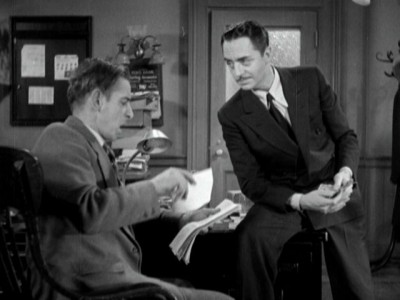

Before you comment
The comments section is here to provide a platform for civil dialogue on the issues we face together as a local community. Xpress is committed to offering this platform for all voices, but when the tone of the discussion gets nasty or strays off topic, we believe many people choose not to participate. Xpress editors are determined to moderate comments to ensure a constructive interchange is maintained. All comments judged not to be in keeping with the spirit of civil discourse will be removed and repeat violators will be banned. See here for our terms of service. Thank you for being part of this effort to promote respectful discussion.